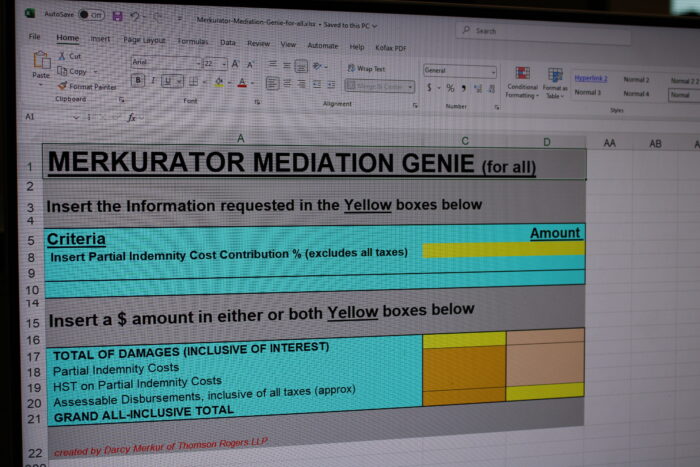How to write an expert medical opinion
Author(s): Robert M. Ben*
April 10, 2018

Four Tips For When A Lawyer Asks You to Predict the Future
Personal injury lawyers routinely call upon health care professionals to provide an expert opinion on the cause and future course of a person’s injuries. The expert opinion is often crucial in helping the court determine whether an injury victim is entitled to compensation and how much compensation is appropriate.
Challenges arise where the future course of a person’s injuries is unknown. For example, will the person’s condition improve or worsen over time? Will their condition negatively impact their ability to work in the future? Will their condition mean that they require costly medical and rehabilitation services for an extended period of time?
Nobody, of course, can predict the future. But this is exactly what the court expects a medical expert to do. Our legal system guarantees injury victims their “day in court” but no more. If a person’s condition worsens, he or she cannot come back to the court and seek additional compensation. In these circumstances, they will have been under-compensated. For this reason, there is a lower burden of proof for future events.
Here are four things to consider if you are asked to give an expert medical opinion in a personal injury matter:
- If the question is whether an accident or event caused, contributed or aggravated an injury, make sure you understand the applicable legal test. In a personal injury lawsuit, it is not necessary to establish causation with certainty or beyond a reasonable doubt. All that is required is an opinion that, on a “balance of probabilities” (i.e., more likely than not), the accident or event caused the injury.
- If, on the other hand, the question is whether the injury will in the future worsen, or require additional medical intervention, or negatively impact a person’s ability to work or function in some way, the legal test is more relaxed. Future events do not need to be clinically certain. Future events do not need to be more likely than not. Future events merely have to be a “real and substantial possibility,” or “real and substantial risk,” and “not mere speculation.” The courts have held that a future possibility as low as 25 percent constitutes a “substantial” possibility.
- While it is not necessary for an expert to express the “possibility” or “risk” of a future event as a percentage, you must understand that the court will take into account the extent of the risk in awarded compensation for future losses. For example, the lower the possibility an injury victim will have to incur future medical and rehabilitation expenses, the lower the compensation.
- Your expert opinion will be more credible and the court will give it more weight if you fairly and reasonably acknowledge normal contingencies common to everyone that might occur independent of the injury. For example, when giving an opinion on an injury victim’s future need for housekeeping assistance, it would be reasonable to consider that, by age 70, that person would need such assistance because of their advanced age, regardless of their injury.
Should you have any questions, please feel free to contact personal injury lawyer Robert Ben.
Share this






